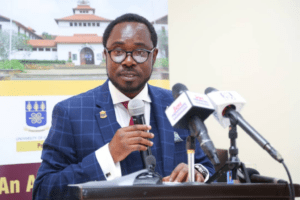
The ongoing criticism surrounding some of President John Mahama’s appointments sheds light on a deeper misunderstanding of the complexities of political appointments and governance among the National Democratic Congress (NDC) grassroots. While frustrations from party footsoldiers are valid in some respects, it is essential to address the multifaceted nature of these appointments and reorient the party’s focus towards a more sustainable model that combines loyalty, competence, and the creation of economic opportunities.
Political campaigns rely on diverse stakeholders working towards a common goal of securing power. There are the footsoldiers—the party’s backbone—comprising polling station executives, branch leaders, and constituency, regional, and national executives. These individuals engage in grassroots mobilization, dedicating their time and effort to ensuring the party’s presence is felt at the community level.
Then there are the financiers, such as private businesspeople, who play a critical but often invisible role. They contribute substantial financial resources to fund campaign activities, knowing that their open affiliation might invite victimization, especially when the party is in opposition. Similarly, professionals and technocrats, including those in private practice or the civil service, bring intellectual capital by helping develop policies and manifestos. These professionals are often not visible at the grassroots, leading to resentment when they are later appointed to prominent positions.
Occasionally, there are hybrids—individuals who are simultaneously footsoldiers, financiers, and professionals. These “poster boys” are widely recognized by the base as deserving of appointments because of their public contributions to the party’s success. For example, a known party loyalist with advanced qualifications like double master’s degrees or a PhD would naturally be celebrated when appointed, as they embody both competence and dedication.
However, tensions arise when appointments go to “unknown faces”, typically financiers or technocrats whose contributions are not visibly tied to the party’s grassroots operations. This discontent is evident in the criticisms of appointments such as the Director Generals of the National Communications Authority (NCA), Ghana Revenue Authority (GRA), and Volta River Authority (VRA). While these positions require specialized expertise, grassroots members often see these appointees as undeserving because they were not part of the visible campaign struggle.
The frustration extends beyond the NDC. For instance, the New Patriotic Party (NPP) faced similar agitation in 2017 and 2021 when footsoldiers perceived certain appointments as sidelining loyal party members. The situation becomes even more volatile when “poster boys” are bypassed for “invisible” financiers or technocrats.
A Paradigm Shift in Appointments
To address these recurring issues, political parties must consider decentralizing appointments. For example:
1. Constituency-Level Appointments: Qualified constituency executives should be prioritized for district-level roles, such as Municipal or District Chief Executives (MDCEs), heads of local National Health Insurance Authority (NHIA) offices, school boards, or National Service Scheme (NSS) coordinators. This approach ensures that loyal grassroots members are rewarded and integrated into governance at a level where they can make a tangible impact.
2. Regional-Level Appointments: Regional executives with the right qualifications could take up appointments at the regional level, ensuring that their loyalty and grassroots experience are recognized.
3. National-Level Appointments: Positions demanding technical expertise, such as CEOs of statutory agencies like the GRA, NCA, and VRA, should be reserved for professionals and technocrats. Balancing loyalty with technical competence is essential for effective governance.
This model would keep the grassroots motivated while ensuring that governance structures are populated by qualified individuals.
Encouraging Entrepreneurship Over Appointments
Political appointments are inherently limited and often fraught with risks, including scrutiny, dismissals, and political persecution. The cases of Victoria Hammah and Cecilia Dapaah are cautionary tales. Victoria Hammah, a former Deputy Communications Minister, was dismissed over comments about her $1 million ambition—a dream unfairly used against her to question her motives. Similarly, Cecilia Dapaah’s wealth drew significant public criticism, raising questions about the pressures and vulnerabilities of political appointees.
Rather than clamoring for these precarious roles, party members, especially the youth, should be encouraged to explore entrepreneurship and leverage opportunities created by government initiatives. For example:
The Ghana Education Service’s (GES) recent release of funds for food procurement in schools presents an opportunity for local businesses. Private caterers engaged to provide one hot meal daily for students could create employment at the district and constituency levels.
Similarly, the government’s promise to supply free sanitary pads for female students opens avenues for local suppliers and distributors to establish businesses around these initiatives.
Unfortunately, many party members overlook these opportunities, focusing instead on the limited political appointments available. Political parties must prioritize sensitizing their members on how to identify and capitalize on such initiatives. Registering sole proprietorships or companies to supply goods and services under government programs is a more sustainable path to economic empowerment than relying on political appointments.
The Bigger Picture: Winning Elections and Governing Effectively
At its core, politics is about winning elections and governing effectively. The current fixation on appointments undermines the broader goal of creating a system that benefits all party members and the country at large. Political parties must reorient their focus toward empowering members through skills development, entrepreneurship, and economic opportunities.
Decentralizing appointments and prioritizing competence over favoritism will also reduce the chaos that accompanies election cycles. It will foster a culture of meritocracy, where members are motivated to pursue academic and professional excellence, knowing that their contributions will be recognized.
In conclusion, the NDC and other political parties must balance loyalty, competence, and economic empowerment. By decentralizing appointments and promoting entrepreneurship, they can create a more sustainable model that benefits both the party and the nation. After all, governance is not just about securing power—it’s about using it to improve the lives of all citizens.
By Lawrence Kojo Addo Cheremeh.
Journalist/Media Relations Consultant.
The post Revisiting political appointments: The NDC’s dilemma and the way forward first appeared on 3News.
Read Full Story
















Facebook
Twitter
Pinterest
Instagram
Google+
YouTube
LinkedIn
RSS